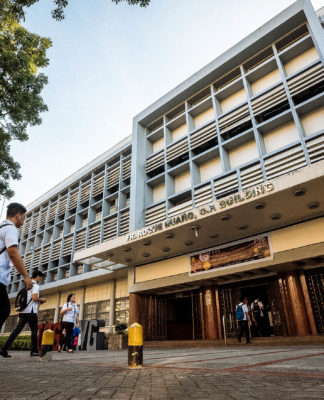THOMASIANS must now surf outside UST to hook on to their favorite music as YouTube, a free video hosting website, was included in the Santo Tomas E-Service Providers’ (STEPS) list of blocked sites.
YouTube joined 68 other websites that were banned for catering to porn, social network service sites like Friendster and Myspace, and proxy sites that let users surf blocked sites anonymously like Pure Privacy, Proxify, and Public Proxy server.
Although these sites are available in other universities, Vice-Rector for Finance and STEPS director Fr. Melchor Saria, O.P., said that UST’s decision to block the sites are based on academic and technical considerations.
“The University prioritizes efficient and fast access to educational sites and resources used by the Thomasian community on online journals, libraries, and subscription databases, among others.” Saria said. “The speed of access to these sites slows down due to bandwidth intensive sites.”
Bandwidth is the speed of data transfer in an Internet connection. When websites with large file formats are accessed, they eat up the bandwidth, causing other users to lag down.
STEPS explained that the University currently has 45 megabyte per second (mb/s) bandwidth and the speed of access to priority sites has decreased. “Accommodating high bandwidth sites such as multimedia streaming and other download sites will entail additional costs many times than the 45 mb/s bandwidth the University is subscribing at the moment,” STEPS consultant John Laurence Uy said.
Saria said that since the start of the academic year, STEPS has been evaluating websites on a daily basis.
“Moral issues, ‘netiquette’, and academic priority will prevail in the daily evaluation of the blocked websites,” Saria said. “STEPS will guard the use of proxy sites in the University that disrupt access to priority sites to ensure that Thomasians do scholarly work over the Internet.”
Saria warned that students who are caught using proxy servers to access banned websites will be sanctioned by the Student Welfare and Development Board.
“I think it is just right to control the use of the non-academic sites,” Commerce student Elsewhere Perez said. “It would be unfair for other students working on their academics if most of the internet users are just for fun.” Marc Laurenze C. Celis













